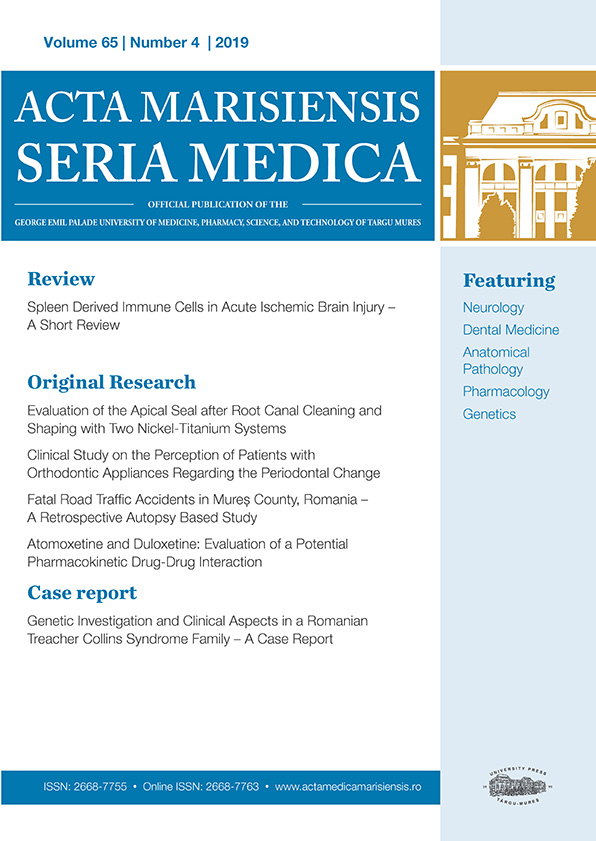SARS-CoV2 Infection in a Multiple Sclerosis Patient Treated with Natalizumab – A Case Presentation
DOI:
https://doi.org/10.2478/amma-2020-0022Keywords:
multiple sclerosis, Natalizumab, SARS-CoV2 infection, COVID-19 outbreakAbstract
Introduction: The novel coronavirus, SARS-CoV2, has rapidly spread worldwide and led to an intense collaboration among both physicians and researchers in order to stop its dissemination. Little is yet known about how this virus behaves, but recent studies have suggested the role of integrins in the viral penetration of target cells. Natalizumab is an anti-α4-β1 integrin monoclonal antibody used in the treatment of multiple sclerosis (MS), a neurodegenerative auto-immune disease affecting primarily young adults. MS patients have a greater susceptibility to develop severe infections especially enhanced by the disease-modifying therapies (DMTs) which are currently recommended for their treatment. Natalizumab is considered the safest high-efficacy DMT in times of COVID-19 outbreak. Case presentation: We hereby describe the first case from Romania of a MS patient treated with Natalizumab who subsequently acquired SARS-CoV2 infection and whose recovery was excellent, with no functional neurological or respiratory sequelae. Conclusion: The favourable evolution of our patient supports the potential therapeutic effect Natalizumab might have in SARS-CoV2 treatment by specifically blocking integrins and by its immunosuppressant characteristics.
Downloads
Published
How to Cite
Issue
Section
License
Acta Marisiensis Seria Medica provides immediate open access to its content under the Creative Commons BY 4.0 license.









